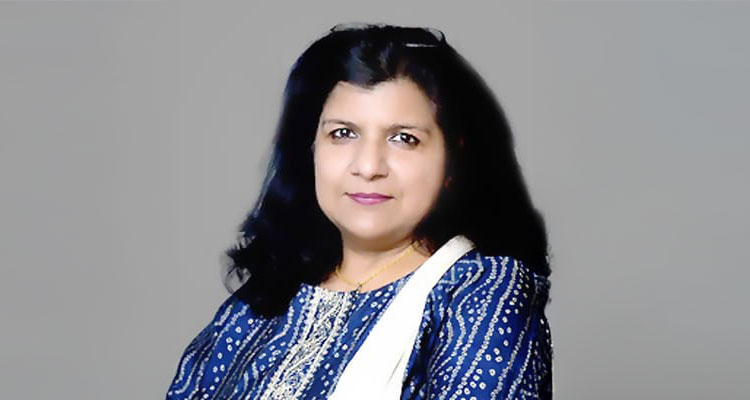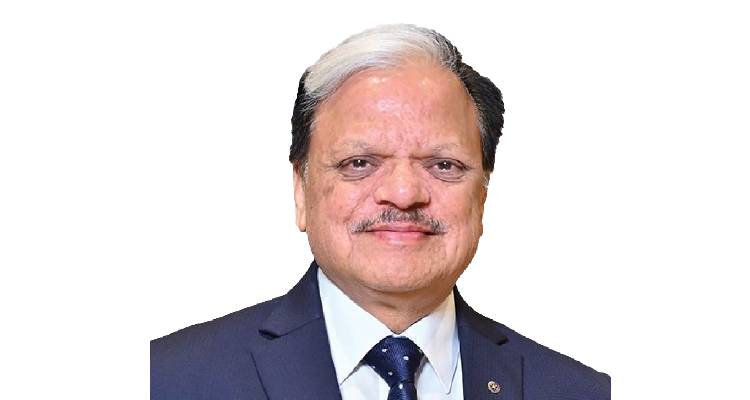

When we talk about geriatric care, or caring for persons above the age of 60, three words come to mind: consistency, compassion, and care. Treating seniors is a deeply rewarding experience that requires a unique mindset, refined skills, and dedicated training. It’s not just about addressing a health condition, it’s about connecting with individuals who bring decades of experience, wisdom, and resilience to the consultation room. They appreciate when healthcare is delivered with patience, clarity, and warmth.
As healthcare providers, we have the privilege of engaging with them thoughtfully—explaining, reassuring, and supporting them with intention. This kind of care cannot be left to instinct alone; it must be nurtured through scientific rigour, medical training and specialisation. That is why geriatric medicine is such a vital and growing field, especially as India’s senior population rises and deserves care tailored to their unique needs.
Geriatric medicine is a specialised field focused on healthcare needs if older adults, addressing complex medical conditions and promoting overall well-being.
India currently has over 150 million people aged 60 and above (1). By 2050, this number will have more than doubled, making 1 in every 5 Indians a senior citizen (2). While we stand well-equipped to give them the right medical care, the holistic aspect of geriatric medicine dedicated to addressing the unique needs of aging individuals is lacking. There are currently only around 300-350 geriatricians practicing in India (3). As of 2024, only 31 MD seats in Geriatric Medicine were available across nine medical colleges (4). Some benchmarks, like those by the American Geriatrics Society recommend 1 geriatrician per 700 elderly individuals—implying a need for over 59,000 geriatricians in India by 2050 (5). This stark mismatch is highlighted by the Global Age Watch Index which ranks India 123 out of 143 countries in terms of readiness for an ageing population—far behind China, Sri Lanka, Nepal, and even Bangladesh. For a country aspiring to become Viksit Bharat, this is a gap needs to be addressed with utmost urgency.
Why geriatric doctors matter
Geriatric medicine is more than just treating older persons—it is about understanding the complexity of ageing bodies and minds. Over 75 per cent of Indian seniors live with at least one chronic condition such as diabetes, hypertension, or arthritis (6). These often co-exist, creating complications that may be missed. Seniors are also more likely to suffer from chronic pain, cognitive decline, and medication interactions due to polypharmacy. A geriatrician knows how to look at the bigger picture, managing not just a condition but the interplay of multiple health issues with a focus on quality of life.
Geriatric specialists focus 0n addressing the unique health needs of older adults, assess cognitive and emotional well-being, and coordinate care across specialisations for holistic health management. They take into account factors like isolation, mobility, and even grief—issues that significantly affect physical health but get overlooked during medical assessments.
The difference in training and approach to geriatric medicine matters. Older adults may be left navigating a fragmented healthcare system, seeing multiple specialists, undergoing repetitive tests, and sometimes being over-medicated—all of which could be avoided with coordinated, specialised care.
The systemic challenges
Despite the growing need, India currently has a very low number of trained geriatricians. The availability of specialised doctors is heavily skewed towards urban centres, leaving vast semi-urban and rural populations underserved. Home-based and community care are still evolving, largely due to a lack of trained senior care professionals and integrated care models.
The Longitudinal Ageing Study in India (LASI, 2020) reports that 32 per cent of older adults have hypertension, 14 per cent live with diabetes, and 18 per cent suffer from arthritis. Co-morbidities are the norm, not the exception, making polypharmacy a serious risk. Seniors are not just patients who are aged, they are patients with unique and evolving needs that our current system is not fully equipped to meet.
Government efforts and the road ahead
There have been some encouraging steps. The National Programme for Health Care of the Elderly (NPHCE) has established two National Centres for Ageing (in Delhi and Chennai) and 19 Regional Geriatric Centres (7). However, now is the time for the private sector to step in—through medical colleges, hospital groups, and senior care providers—to create geriatric training pipelines not just for doctors, but also nurses, physiotherapists, and mental health professionals.
Here’s what we must do urgently:
- Scale up geriatric training: India needs to increase the number of dedicated postgraduate programs and short-term training modules to increase the number of geriatric care specialists.
- Embed geriatric competencies in primary care: General physicians should be trained to identify red flags specific to ageing populations.
- Expand service delivery: Geriatric services must be decentralised, extending into tier 2 and 3 cities, and rural India.
- Promote integrated care models: Combining physical, emotional, and cognitive health services under one umbrella will improve outcomes.
- Leverage technology: Telemedicine, wearable monitoring, and remote diagnostics can ensure consistent, quality care for seniors with mobility or access barriers.
- Invest in infrastructure: Beyond hospitals, India needs more senior care homes, dementia care facilities, transition care centres, and palliative care facilities.
A national imperative
Investing in geriatric care is not just a healthcare necessity, it is a moral and national imperative. The elderly population is not a burden. They are our parents, teachers, and builder of society who now deserve extra care, dignity, and respect. India must bring the needs of this segment to the forefront. Doctors, institutions, and the government must come together to build a future-ready healthcare system. That future is not 20 years away, it is already here. By investing in geriatric training, infrastructure, and policy today, we secure the well-being of millions tomorrow.
References:
- https://www.hindustantimes.com/india-news/indias-elderly-population-expected-to-double-by-2050-unfpa-101721542939479.html?
- https://india.unfpa.org/sites/default/files/pub-pdf/20230926_india_ageing_report_2023_web_version_.pdf?
- https://www.researchgate.net/publication/389210740_Addressing_Geriatric_Care_Challenges_in_India_Through_Task_Shifting_and_Sharing?
- https://www.researchgate.net/publication/389210740_Addressing_Geriatric_Care_Challenges_in_India_Through_Task_Shifting_and_Sharing?
- https://www.researchgate.net/publication/389210740_Addressing_Geriatric_Care_Challenges_in_India_Through_Task_Shifting_and_Sharing
- https://www.outlookmoney.com/retirement/senior-living/75-of-senior-citizens-in-india-suffer-from-chronic-diseases-prevention-methods-to-tackle-them?
- https://dghs.mohfw.gov.in/national-programme-for-the-health-care-of-the-elderly.php
https://ijrpr.com/uploads/V6ISSUE5/IJRPR44688.pdf
https://www.linkedin.com/posts/swatiranephd_the-gap-in-geriatric-services-in-india-is-activity- 7248563445741109248-6SlJ/
The post 1 in 5 Indians will be over 60 by 2050 — Do we have enough doctors specialised in geriatric care? appeared first on Express Healthcare.




